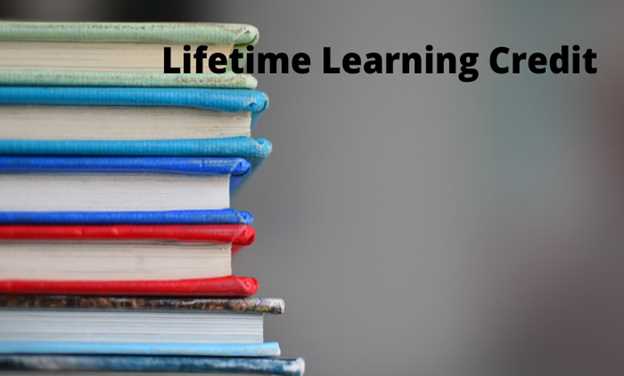What is the Lifetime Learning Credit?
The Lifetime Learning Credit is a tax credit that can help individuals and families offset the costs of higher education. It is available to eligible students who are enrolled in an eligible educational institution and are pursuing an undergraduate or graduate degree, or taking courses to acquire or improve job skills.
The credit is designed to provide financial assistance for educational expenses, such as tuition, fees, and required course materials. Unlike some other tax credits, the Lifetime Learning Credit is not limited to a specific number of years and can be claimed for an unlimited number of years.
How does the Lifetime Learning Credit work?
The Lifetime Learning Credit allows eligible taxpayers to claim a credit of up to $2,000 per tax return. The credit is calculated as a percentage of the qualified educational expenses paid during the tax year. The percentage is determined by the taxpayer’s modified adjusted gross income (MAGI).
To claim the credit, taxpayers must complete IRS Form 8863 and attach it to their tax return. The credit is non-refundable, which means it can only be used to offset taxes owed. If the credit exceeds the amount of taxes owed, the excess cannot be refunded.
Who is eligible for the Lifetime Learning Credit?
To be eligible for the Lifetime Learning Credit, the taxpayer, their spouse, or their dependent must be enrolled in an eligible educational institution. The institution must be accredited and eligible to participate in federal student aid programs.
There are also income limits for claiming the credit. For the tax year 2021, the MAGI limit is $80,000 for single filers and $160,000 for joint filers. The credit gradually phases out as income exceeds these limits.
Additionally, the taxpayer must have paid qualified educational expenses during the tax year. These expenses must be necessary for enrollment or attendance at an eligible educational institution. Examples of qualified expenses include tuition, fees, and required course materials.
Common Questions about the Lifetime Learning Credit
1. Can I claim the Lifetime Learning Credit if I am also claiming the American Opportunity Credit?
No, you cannot claim both credits for the same student in the same tax year. However, you can claim different credits for different students in the same tax year.
2. Can I claim the Lifetime Learning Credit if I am not pursuing a degree?
Yes, the credit is available to individuals who are taking courses to acquire or improve job skills, even if they are not pursuing a degree.
3. Can I claim the Lifetime Learning Credit if I am a nonresident alien?
No, nonresident aliens are not eligible for the Lifetime Learning Credit.
4. Can I claim the Lifetime Learning Credit for expenses paid with tax-free educational assistance?
No, you cannot claim the credit for expenses that were paid with tax-free educational assistance, such as scholarships or grants.
5. Can I claim the Lifetime Learning Credit if I am married filing separately?
No, if you are married filing separately, you are not eligible for the Lifetime Learning Credit.
It is important to note that the information provided here is a general overview of the Lifetime Learning Credit. Taxpayers should consult the IRS website or a tax professional for specific guidance and to determine their eligibility for the credit.
Eligibility for the Lifetime Learning Credit
The Lifetime Learning Credit is a tax credit that helps individuals and families offset the costs of higher education. It is available to eligible students who are enrolled in an eligible educational institution and are pursuing a degree or taking courses to acquire or improve job skills.
Who is eligible?

To be eligible for the Lifetime Learning Credit, you must meet the following criteria:
| Criteria | Explanation |
| Enrollment status | You must be enrolled in an eligible educational institution on at least a half-time basis for at least one academic period during the tax year. |
| Eligible expenses | The expenses you are claiming for the credit must be qualified education expenses, such as tuition and fees required for enrollment or attendance at the institution. |
| Modified Adjusted Gross Income (MAGI) | Your MAGI must be below the specified income limits set by the IRS. These limits are subject to change each year. |
| Filing status | You must file your tax return using either the Single, Head of Household, Qualifying Widow(er), or Married Filing Jointly status. The Married Filing Separately status is not eligible for the credit. |
Common Questions

Here are some common questions about the eligibility for the Lifetime Learning Credit:
- Can I claim the credit if I am not pursuing a degree?
- Can I claim the credit for expenses paid for my spouse or dependent?
- Can I claim the credit if I am not a U.S. citizen?
Yes, you can still claim the credit if you are taking courses to acquire or improve job skills, even if you are not pursuing a degree.
No, the Lifetime Learning Credit is only available for expenses paid for yourself, your spouse, or your dependent.
Yes, as long as you meet all the other eligibility requirements, you can claim the credit regardless of your citizenship status.
It is important to note that the Lifetime Learning Credit is a non-refundable credit, meaning it can only reduce your tax liability to zero. If the credit exceeds your tax liability, you will not receive a refund for the remaining amount.
Before claiming the Lifetime Learning Credit, make sure to review the IRS guidelines and consult with a tax professional to ensure you meet all the eligibility requirements and properly calculate the credit amount.
Common Questions about the Lifetime Learning Credit
| Question | Answer |
| 1. Can I claim the Lifetime Learning Credit if I already claimed the American Opportunity Credit? | Yes, you can claim both credits, but not for the same student and the same expenses. The Lifetime Learning Credit is available for an unlimited number of years, while the American Opportunity Credit is limited to four years of undergraduate education. |
| 2. Can I claim the Lifetime Learning Credit for expenses paid with student loans? | Yes, you can claim the credit for expenses paid with student loans. However, you cannot claim the credit for expenses paid with tax-free scholarships, grants, or employer-provided educational assistance. |
| 3. Can I claim the Lifetime Learning Credit if I am not pursuing a degree? | Yes, the Lifetime Learning Credit is available to individuals who are taking courses to acquire or improve job skills. You do not need to be pursuing a degree or enrolled in a degree program to claim the credit. |
| 4. Can I claim the Lifetime Learning Credit for expenses paid to a foreign educational institution? | |
| 5. Can I claim the Lifetime Learning Credit if I am married filing separately? | No, if you are married filing separately, you cannot claim the Lifetime Learning Credit. You must file a joint return with your spouse in order to be eligible for the credit. |

Emily Bibb simplifies finance through bestselling books and articles, bridging complex concepts for everyday understanding. Engaging audiences via social media, she shares insights for financial success. Active in seminars and philanthropy, Bibb aims to create a more financially informed society, driven by her passion for empowering others.
